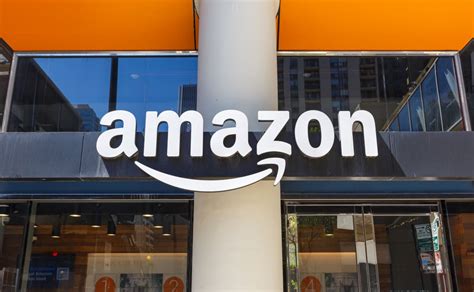FAQs
Zucchini and yellow squash are the most common types of summer squashes, and both are excellent sources of vitamin C, lutein, and zeaxanthin — antioxidants responsible for keeping eyesight sharp and immune systems strong.
Is summer squash a superfood? ›
Summer squash is considered a healthy choice for the calories; one cup of raw squash has less than 20 calories. Squash is an excellent source of vitamin C, which helps wounds heal, resist infection, and keeps teeth and gums healthy. Vitamin A aids in normal vision and healthy skin and protects against infections.
Which is healthier, zucchini or yellow squash? ›
Is yellow squash as nutritious as zucchini? The two are very similar in terms of their nutrition content and health perks. For example, both are about 95% water, making them low in both calories and carbs, and are decent sources of vitamins A and C, potassium, and fiber.
What is the healthiest summer squash? ›
Not only are summer squash low in calories, but they also have little to no cholesterol, fat, and sodium—all nutrients we should be limiting. On the flip side, both zucchini and yellow squash boast vitamins A and C, potassium, plus fiber.
How does summer squash help the body? ›
Nutrition and Health Benefits of Summer Squash
Summer squash is a good source of vitamin B6, which helps maintain skin health and red blood cells. Summer squash is a great source of vitamin C, which helps heal cuts and wounds. The rinds are rich in beta-carotene, which helps eye health.
What is the disadvantage of summer squash? ›
Disadvantage: summer squash retains a lot of water so you are using up space in your freezer; when thawed the zucchini will be mushy so don't plan on sauteeing or using in a recipe that will be affected by the extra liquid.
Can you eat too much summer squash? ›
While the high beta-carotene content in squash can provide many benefits, studies also suggest that consuming too much of this compound can increase the risk of lung cancer. In addition, some types of prepared squash include high amounts of added sugar.
Is it okay to eat yellow squash everyday? ›
Yellow squash is low-calorie, so you can eat a lot of it and still meet your calorie requirements for the day. It's also a great vegetable to mix in or add to pastas and other calorie-dense foods to fill you up while helping you slim down. It is a good source of beta-carotene.
Is yellow squash good for your kidneys? ›
Kidney-friendly squashes include yellow crookneck, scallop, and spaghetti. Some that should be enjoyed on occasion in half serving sizes (due to their potassium content) include pumpkin, butternut, acorn, hubbard and zucchini.
Which is healthier cucumber or zucchini? ›
Zucchini is richer in vitamin B and vitamin C as compared to cucumbers. Both vegetables have relatively equal amounts of calcium but zucchini is richer than cucumbers in potassium and iron. Zucchini also has a higher amount of protein and fiber.
Anti-inflammatory Capacity
Although anti-inflammatory effects can certainly extend to arthritis and gout, studies on squash have specifically linked its impact to reducing gastric and duodenal ulcer reduction, as well as to general anti-inflammation of the cardiovascularsystem.
Is yellow squash healthier raw or cooked? ›
Cooking yellow squash can also have its unique health benefits. For example, cooking yellow squash increases its availability of beta-carotene, an antioxidant that helps protect against cellular damage and supports eye health.
Can you eat the whole summer squash? ›
Certainly I know you can eat the skin on summer squashes, like zucchini, pattypan and yellow summer squash. With their thin skin and watery flesh, leaving the skins on helps give summer squash a pleasantly chewy texture.
Which is better, yellow squash or zucchini? ›
Thankfully, zucchini and yellow squash are mostly interchangeable. However, we usually go for zucchini in most dishes, like in sweet breads and cakes and pasta dishes.
Which squash has the most health benefits? ›
Butternut Squash
Its orange flesh has a sweet and nutty flavor and is packed with fiber, vitamins, minerals, and protective plant compounds. In addition to vitamins A and C, butternut squash is also rich in carotenoid plant pigments and minerals like potassium, magnesium, and manganese.
Is it good to eat raw summer squash? ›
Squash has many nutritional benefits and is typically low in starch. "Zucchini, yellow squash, patty pan — any thin-skinned squash— can be eaten raw," Chef Francine Marz, Dean of Culinary & Hospitality at The Culinary Institute of the South, says.
Is yellow squash really that good for you? ›
The vegetable is high in vitamins A, B6, and C, folate, magnesium, fiber, riboflavin, phosphorus, and potassium. That's a serious nutritional power-packed veggie. Yellow squash is also rich in manganese. This mineral helps to boost bone strength and helps the body's ability to process fats and carbohydrates.
Is yellow squash healthier, raw or cooked? ›
Cooking yellow squash can also have its unique health benefits. For example, cooking yellow squash increases its availability of beta-carotene, an antioxidant that helps protect against cellular damage and supports eye health.
![]()
